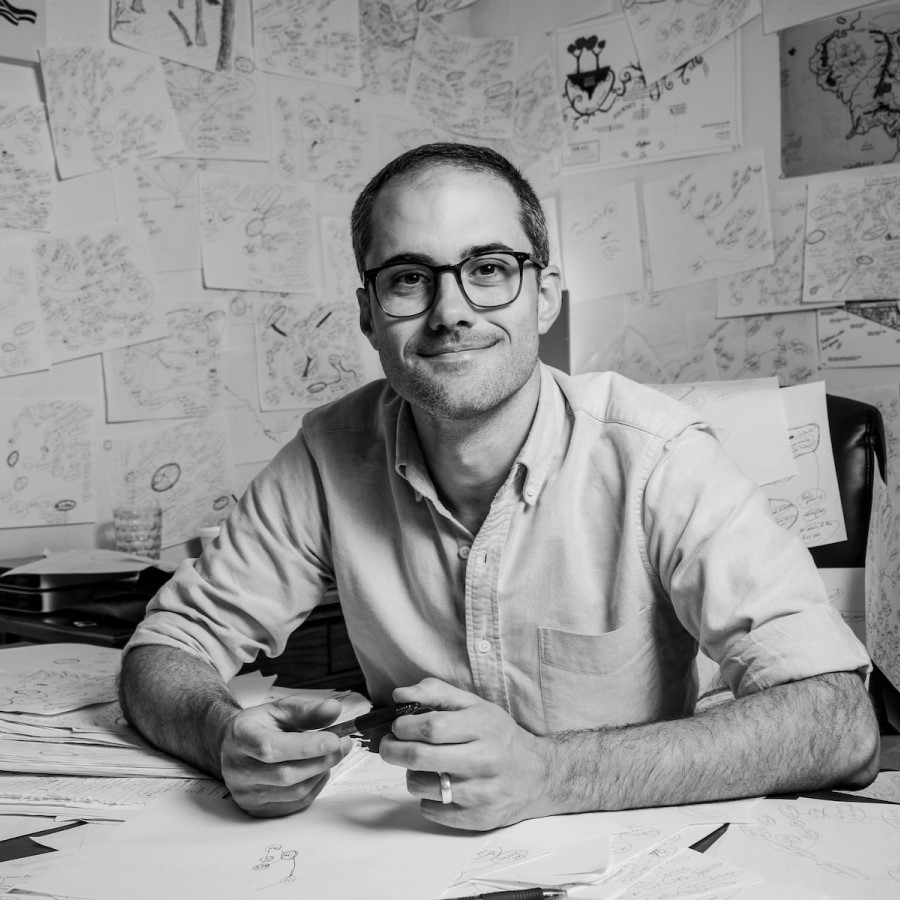Always A Child
I am a late bloomer, but not in terms of physical growth. I have stayed around the same size since twelve.
I am talking about character growth—maturity. From the precarious perspective of self-judgment, it appears that I have finally begun maturing.
What Was
I remained an anxious, lazy, socially awkward teen late into my twenties. The curious combination of 1) my confidence of being right and 2) my terror of being wrong characterized me, including my inability to share and receive ideas, to make new relationships and to restore broken ones, and to explore new things. I was reduced to condemning and to avoiding condemnation, the latter taking up most of my time and causing a great deal of anxiety.
The warden most responsible for this was my southern-conservative, moralistic legalism. I felt constrained to meet the highest possible standard of maturity, and failure to meet this standard held some amorphous doom. This compulsion imprisoned me, driving me to manufacture character growth.
Child (Type 1) to Child (Type 2)
The more we learn, the more we realize we don’t know. The harder we pursue the boundary of possible knowledge, the farther away it appears, and simultaneously we are made aware of gaps in what we think we know. Thus, true masters in their fields are often the first to admit ignorance. This idea has been attributed to persons like Socrates, Plato, and Einstein, and I have found it to be true as I have studied at DTS. Five years ago, prior to the heaps of work my seminary studies have required, I felt much more confident in my mastery of theology and my ability to exegete. The opposite must be true as well—the less we learn, the more we feel like we know.
Building upon this, a correlation with maturity seems appropriate. An immature person thinks he is mature, whereas a more mature person realizes his immaturity and how unreachable perfect maturity is.
So we remain children either way. Either we fail to grow, ignorantly parading our immaturity as if it were maturity, or we grow, continually recognizing what appears to be an increasing gap, or disparity, between our maturity and perfect maturity.
The person who feels mature is a child, and the person who matures feels like a child.
The Recognition of Inadequacy and Acceptance
Through my late twenties, the standard I sought to achieve was perfect maturity, and inadequacy terrified me. This fear was further stimulated as I studied the Christian Bible within my moralistic, legalistic worldview. I saw the standard of perfect maturity rise higher and higher, increasing the disparity between it and my so-called maturity, no matter how hard I tried to manufacture my own growth. So in one sense, I was moving toward child (type 2); I saw the disparity. But because I rejected the notion that this disparity should continue to exist, my recognition was lifeless.
If maturity is characterized by a “continual recognition of what appears to be an increasing disparity between one’s own maturity and perfect maturity,” a person who rejects his perpetual immaturity (in relation to perfect maturity, thus rejecting the disparity) cannot grow. He will go insane trying to become perfectly mature (trying to remove the disparity), he will give up altogether, or he will lower the standard to something manageable (and less than perfect). I was on the insane route.
Thus, it seems likely that a person moving from child (type 1) to child (type 2) accepts her immaturity in relation to perfection, continually recognizing what appears to be an increasing disparity between her own maturity and perfect maturity.
During my first year in seminary, The Grace Awakening by Chuck Swindoll, among other things, served as a catalyst. Through no manufacturing of my own, I was made aware of my legalism—this worldview that led to my compulsion for perfect maturity, and I was convinced of its fallaciousness. My affirmation of the Christian evangelical doctrine salvation by grace alone through faith alone in Christ alone expanded from the abstract, legal sense I had previously accepted to the freedom I have in the present:
I am not constrained to grow in order to be free; I am free to grow, constrained only by the benevolent, divine grace by which I do so.
As a result of this paradigm shift, my response to inadequacy began changing. Perceiving inadequacy is becoming an impetus for remembering my freedom, and while maturity is good, such is not necessary or guaranteed (in this life). Rather than merely recognizing the gap between myself and the perfection, I have begun embracing it. I believe this reflects a move toward child (type 2).
I hope that the birth of my acceptance of perpetual inadequacy indicates that I have begun moving from child to child. If anything, I feel liberated. But even if this is not the case, I’m more okay with such now than I would have been five years ago.
